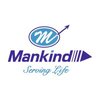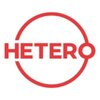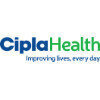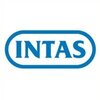
Cipla
Proud winner of ABECA 2025 - AmbitionBox Employee Choice Awards
Filter interviews by
Cipla Pharmacist Interview Questions and Answers
Cipla Pharmacist Interview Experiences
17 interviews found
I appeared for an interview in May 2025, where I was asked the following questions.
- Q1. Q. What is the most commonly used antibiotic drug? Ans. The most commonly used antibiotic drug is amoxicillin.
- Q2. Q. What is Vitamin D3 used for? Ans. Vitamin D3 is used to treat and prevent vitamin D deficiency, support bone health, and boost immune function.
- Q3. Q. What is a substitute injection for Voveron? Ans. Diclofenac is a common substitute for Voveron Injection.
- Q4. Q. What is a pediatric drop? Ans. Pediatric drops are liquid medications specifically formulated for children, usually in a lower concentration than adult medications.
I appeared for an interview in Apr 2025, where I was asked the following questions.
- Q1. Antibiotics drugs Cefaxime,cipromax , Aceclofenac, Azithromycin.
- Q2. Analgesic drug -Tramadol painkiller drug, pediatrics drug paracetamol, calpol.
- Q3. Antiallergic Drug-cetrazine, arset.
- Q4. Antituberculous drug- ethambutol,rifamcin.
- Q5. Antidiabetic drug- metformin
- Q6. Rhiumaitic drug- calcium tablet ,VitminD3.
- Q7. Analgesic drug - injection gustin injection
- Q8. Anti acid drug- aciloc 350mg Hastag
Interview Preparation Tips
I appeared for an interview in May 2025, where I was asked the following questions.
- Q1. Medicine names with its uses
- Q2. Problem of patients
(5 Questions)
- Q1. Role of pharmacy
- Q2. Kya experience hona chahiye
- Q3. Costumers ko kaise
- Q4. Emargency me kon
- Q5. Kitne type medicine
(2 Questions)
- Q1. Different between Lod and water content
- Q2. What is titration
- Ans.
Titration is a technique used in chemistry to determine the concentration of a substance in a solution by reacting it with a solution of known concentration.
Titration involves slowly adding a solution of known concentration (titrant) to a solution of unknown concentration until the reaction reaches its endpoint.
The endpoint is usually indicated by a color change or other observable change, such as a sudden change in pH...
I applied via Job Portal and was interviewed in Sep 2023. There were 2 interview rounds.

(4 Questions)
- Q1. Pharma engineering
- Q2. Tablet capsule syrups emulation suspention etc
- Q3. Types of emulation
- Ans.
Emulation refers to the process of imitating the behavior of one system using a different system.
Hardware emulation: mimicking the behavior of hardware components using software or specialized hardware
Software emulation: replicating the functions of software on a different platform or operating system
System emulation: simulating an entire computer system, including hardware and software components
Examples: VirtualBox f...
- Q4. Types of tablets
Interview Preparation Tips
Skills evaluated in this interview
I applied via Naukri.com and was interviewed in Jul 2023. There were 2 interview rounds.
(5 Questions)
- Q1. I am Aadil Choudhary pharmacy student Shri Venkateswara Gajrula Amroha UP
- Q2. What is pharmacology
- Q3. What is noble drug and Delivery system
- Q4. What is biological sciences
- Ans.
Biological sciences is the study of living organisms and their interactions with the environment.
It encompasses various disciplines such as biology, biochemistry, genetics, and ecology.
Biological sciences explore the structure, function, behavior, and evolution of living organisms.
It includes research on topics like cell biology, microbiology, physiology, and molecular biology.
Examples of biological sciences applicatio...
- Q5. Clinical pharmacy what is
(2 Questions)
- Q1. Pharmaceutical sciences
- Q2. Pharmacology and Microbiology
Interview Preparation Tips
- Pharmacy
Skills evaluated in this interview
I applied via Naukri.com and was interviewed before Aug 2023. There was 1 interview round.
(5 Questions)
- Q1. Tall me sam about you
- Q2. Can me my work
- Q3. In the my job
- Q4. Human body parts
- Q5. In the form work
Interview Preparation Tips
I applied via Job Portal and was interviewed in Nov 2021. There were 3 interview rounds.
Interview Questionnaire
3 Questions
- Q1. Im 21 years old and my D.pharmacy complete in 2021. I have 3-4 months medical training experience. Is there any suitable job vacancy for me?
- Q2. How much starting salary in your company?
- Q3. How many hours timing for job for pharmacist?
Interview Preparation Tips
Its better for me

(5 Questions)
- Q1. How do you define success? What are your strength? What are your hobbies?
- Q2. What are your qualification? How do you define success?
- Q3. What do you choose a carrier in the pharma?
- Q4. How do you determine priorities when you have multiple projects due..?
- Ans.
Priorities are determined based on urgency, importance, and available resources.
Assess the urgency of each project and prioritize accordingly
Consider the importance and impact of each project
Evaluate the available resources and allocate them accordingly
Communicate with stakeholders to understand their expectations and deadlines
Create a timeline or schedule to manage and track progress
Reassess priorities as new informat...
- Q5. In your opinion why is
Interview Preparation Tips
Apply if ur not Fully qualified...
Job search likes it your job...
Top trending discussions






Cipla Interview FAQs
Some of the top questions asked at the Cipla Pharmacist interview -
Tell us how to improve this page.
Cipla Interviews By Designations
- Cipla Senior Executive Interview Questions
- Cipla Assistant Manager Interview Questions
- Cipla Therapy Manager Interview Questions
- Cipla Medical Representative Interview Questions
- Cipla Pharmacist Interview Questions
- Cipla Trainee Interview Questions
- Cipla Executive Interview Questions
- Cipla Deputy Manager Interview Questions
- Show more
Interview Questions for Popular Designations
Overall Interview Experience Rating
based on 17 interview experiences
Difficulty level
Duration
Pharmacist Interview Questions from Similar Companies
Cipla Pharmacist Reviews and Ratings
based on 35 reviews
Rating in categories
|
Senior Executive
3.8k
salaries
| ₹3.1 L/yr - ₹7 L/yr |
|
Assistant Manager
2.8k
salaries
| ₹5 L/yr - ₹12 L/yr |
|
Deputy Manager
1.2k
salaries
| ₹9.4 L/yr - ₹16.2 L/yr |
|
Executive
989
salaries
| ₹2.1 L/yr - ₹5.1 L/yr |
|
Area Business Manager
607
salaries
| ₹5.7 L/yr - ₹12 L/yr |

Dr. Reddy's

Lupin

Zydus Lifesciences

Sun Pharmaceutical Industries
- Home >
- Interviews >
- Cipla Interview Questions















